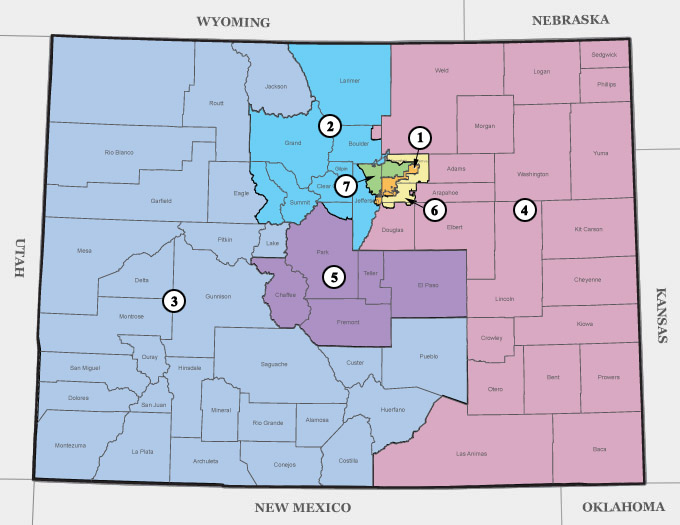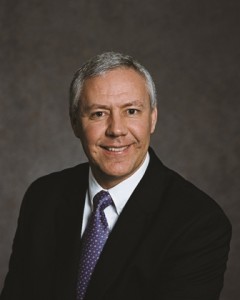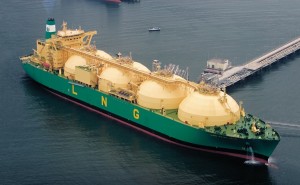OAG360: Are there any models for tax reform that you would like to see implemented here in the United States?
Buck: Yeah. The chainsaw in my garage is what I think would work best.
U.S. Congressman Ken Buck’s congressional district sits on top of 85% of Colorado’s oil production—70.1 million barrels in 2014. He is a federal lawmaker with a strong understanding of the importance of oil and gas production to both the U.S. and the seventh largest producing state.
The topic of lifting the crude oil ban has been hotly debated, both by the Senate and the U.S. House of Representatives, as opponents of the ban tout the benefits of exporting crude oil abroad, while others remain uncertain that allowing U.S. crude into the world market is really in the best interest the United States.
House legislation (H.R. 702) would end the 40-year ban on the export of domestic crude oil. The bill will receive a floor vote this fall, Rep. Joe Barton (R-Texas), the bill’s sponsor, told Bloomberg BNA Aug. 6.
To gain some insight into lifting the crude oil export ban Oil & Gas 360® spoke with Congressman Ken Buck (R-Colo.) for this exclusive interview.
Ken Buck is the congressional representative for Colorado’s 4th congressional district, which includes all of eastern Colorado. Buck began his term in office in January of this year, serving on the House Judiciary Committee and the House Committee on Oversight and Government Reform, among others.

Prior to taking his post in the U.S. House of Representatives, Buck served as Weld County’s District Attorney for three consecutive terms.
Oil & Gas 360® exclusive interview with Congressman Ken Buck
OAG360: I recently read what you wrote in The Denver Post about lifting the crude export ban; why do you feel the ban is no longer appropriate?

Congressman Ken Buck: Well I don’t know that it was ever appropriate. Trying to manipulate the world marketplace is really putting the oil and gas producers in America at a disadvantage. There have been some reforms to that ban that were put in place in the 90’s. [It resulted from], the 1973 oil crisis and I think that the last remnants of that ban should be struck down and oil gas producers and America [should be] able to produce and export their product. The fact that the market price for world oil is higher than the market price for U.S. oil really prevents American producers from creating more jobs or really making the energy economy in this country more vibrant.
OAG360: Aside from bringing the price of U.S. crude oil more in line with the global marketplace, what will lifting the ban mean for U.S. energy security?
Buck: The fact that Russia is able to use, and other countries frankly, are able to use their energy production in a way that coerces other countries or puts our allies at risk is just another reason that that America should be trying to lift this ban. We could use our production to help our allies in Ukraine, in Europe, or in other countries so that Russia and countries who use energy in a destructive manner, in terms of democracies and capitalist open market systems. I think it’s important that the U.S. plays in that space and we make sure that we are helping the folks who are who are helping us.
OAG360: It seems like there are a lot of reasons to look at lifting this ban, so why is it being resisted?
Buck: You know, it’s a good question. I think that there are environmentalists that want to prevent energy production, and certainly fossil fuel energy production in the United States, so that’s one group that will undoubtedly oppose the export of crude oil. I’m sure that there are other business interests that don’t want to see it exported, but I think when folks in Congress see the challenges that are faced by oil and gas companies that can’t export, I believe we will pass this reform.
OAG360: Do you believe the political will is there in Congress now to make this reform happen?
Buck: I do. I haven’t spoken to a lot of members about it, and most of the members that I talk to are free-market advocates, and are folks that are on a conservative side and are Republicans. I think it will get through the House, but I don’t know what’s going to happen in the Senate. I would imagine it would, but I just don’t know.
EPA overstepped its authority with the Clean Power Plan
OAG360: Speaking of other bills that are coming before Congress, the Environmental Protection Agency (EPA) recently released the final version of its proposed Clean Power Plan, what are your thoughts on the proposal?
Buck: I think the EPA has gone far beyond what Congress intended in both Clean Air and Clean Water Acts and I think that they are pursuing a political agenda and trying to use something very thinly disguised as science to support their agenda. I think it’s a terrible mistake.
I think that the United States cannot continue to overregulate our domestic manufacturing sector and hope to compete with China, India and other countries. The sad part of what the EPA is trying to do is that it is driving up the cost of energy for those who can afford it the least. And that’s really a terrible problem. Natural gas and coal are essential for inexpensive electricity for homes and businesses. We can’t drive up the price of that electricity without a severe impact on those who are really living paycheck to paycheck.
OAG360: I would like to get your point of view on liquefied natural gas (LNG). Colorado Governor Hickenlooper recently came out in favor of the Jordan Cove LNG project that will be on the West Coast. What is your stance on LNG, and how could it benefit Colorado?

Buck: Well if you’re talking about exporting liquefied natural gas, I think it’s another product that there is a world market for, and Americans should be playing in the world market for a variety of reasons. I think it helps gas producers in this country and I think, frankly, that it helps consumers around the world. We have the largest reserves of natural gas in the world, and for the United States not to be aggressively marketing LNG outside of the United States is a mistake.
The role of the state in the energy industry
OAG360: How do you feel about municipal control of oil and gas regulations? Is it a subject better left to the state?
Buck: I think it should be left to the state. I don’t think it should be a community-by-community decision. There was some language that was suggested for the ballot last year supporting that, and I think that was a mistake. I also think it’s a mistake for the federal government to try to micromanage the oil and gas production, or frankly other forms of energy production around the country.
The state of Colorado has strict rules. I think the rules are working, both in terms of safety and in terms of production. There were some adjustment at the time that those rules were implemented, I know that was pushed back, but I think that folks have adjusted. I think that for the federal government to get involved goes beyond the scope of what the Constitution suggests the federal government’s role is, as well as goes against what is best for the marketplace.
OAG360: Speaking about projects that were caught up in political decisions, what is your standpoint on the Keystone XL pipeline?
Buck: I voted for building the Keystone XL pipeline. That passed the House, passed the Senate and unfortunately President Obama vetoed that. I think it’s important for a number of reasons: It creates a number of jobs initially, during the building of the pipeline; there will be other jobs that will be needed to maintain and operate the pipeline; and it also reduces the heavy burden rail transport of oil and natural gas. So I think there are a number of reasons that it makes a lot of sense.
I think that the economy in this country we really need to move towards North America energy independence. I think that pipelines to bring this oil from Canada and from Mexico are a necessary part of getting that job done.
Establishing North American energy independence
OAG360: Aside from North American energy independence and lifting in the crude export ban, is there anything that you think would help bolster the U.S. energy sector?
Buck: I think that the overall economy is critical to increasing the demand for energy in America and I think that we have to reform our tax code in this country. We have the highest corporate tax rate in the world and we are placing too much of a burden on our producers here, our manufacturers. So I think it’s important that we reform our tax code.
The regulatory side of the federal government needs to back off. Nobody wants dirty water or dirty air, but we are so far beyond that in what the EPA is doing, and other agencies, that I think it’s just very important that we try to build our economy to deal with the budget issues that we’ve got now, and also create more demand for energy.
OAG360: Are there any models for that reform that you would like to see implemented here in the United States?
Buck: Yeah. The chainsaw in my garage is what I think would work best. We need to reduce spending and if the budget model, the tax reform model, is one where we reduce our corporate taxes we will keep your jobs here and actually increase revenues to the federal government.







